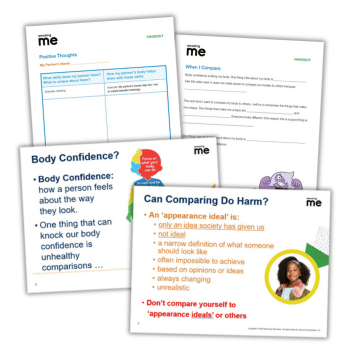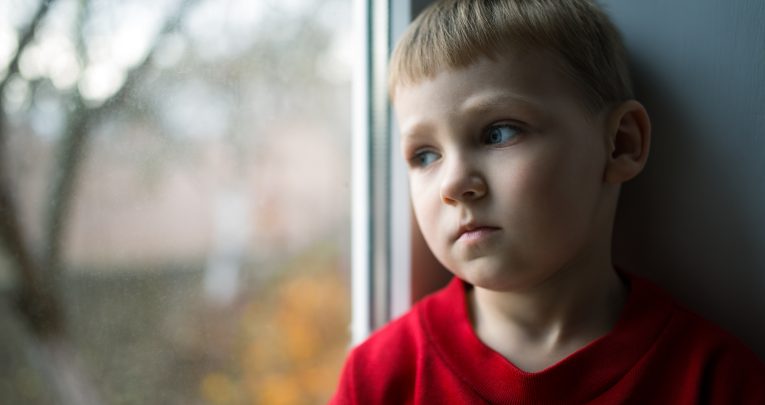Children’s bereavement – How teachers can help grieving pupils

Develop staff understanding, skills and confidence in dealing with children’s grief with this helpful advice…

- by Teachwire
- Classroom expertise and free resources for teachers

We are all likely to have experienced some form of bereavement in our lives, and can understand the immense sense of loss and grief that’s involved. Talking about death is difficult, but when it comes to children’s bereavement, schools can provide vital support for pupils and their families.
How to help grieving primary pupils
What death means
KS1
A child’s understanding about death develops with age. Between the ages of five and seven, children gradually begin to understand that death is permanent and irreversible, and that the person who has died will not return.
As awareness of the finality of death develops, children bereaved earlier in their lives often need to re-process what has happened.
Young children’s imagination and ‘magical thinking’ can lead some to believe that their thoughts or actions have caused the death, and they can feel guilty.
“Children bereaved earlier in their lives often need to re-process what has happened”
They may become extremely angry or, alternatively, try to be exceptionally ‘good’, to compensate for what they believe they have done.
KS2
By the end of KS2, most pupils will understand the inevitability of death, and be aware of their own and others’ mortality; this can lead to fear and insecurity.
They will seek information and answers to their questions. Children who are not given sufficient information in age-appropriate language, can ‘make up’ the gaps in their knowledge.
They may also take on the responsibilities of a surviving adult or siblings and, by trying to appear grown up, put themselves under additional stress.
How children show grief
Children can grieve just as deeply as adults, but they often show it in different ways. There is no time limit on grief, and it doesn’t go away, it just changes over time.
Although the grief will always be there, bereaved children can grow a new life around their grief. Everyone grieves in their own unique way, but it’s hard work and can be exhausting.
Behaviour following a death can be affected by both loss-orientated thoughts (being tearful and wanting to talk about the person who died) and restoration-orientated thoughts (playing and spending time with friends). Coping with bereavement usually involves switching between each of these mindsets.
Younger children can find it difficult to cope with sad feelings for too long, and can ‘puddle jump’, appearing to move in and out of their grief, a bit like they are jumping in and out of a puddle.
“Younger children can find it difficult to cope with sad feelings for too long”
One common misconception is that a bereaved pupil acting normally in the playground is ‘unaffected by their grief’ or has ‘got over a death’, which is simply not the case.
Supporting bereaved children
Most grieving pupils do not need a ‘bereavement expert’, just people who care. By carrying on with the usual day-to-day activities while acknowledging the bereavement, schools can provide a huge amount of support to a grieving child.
Children learn how to grieve by copying the responses of the adults around them. Younger children in particular have a limited ability to put feelings, thoughts and memories into words.
They tend to ‘act out’ rather than expressing themselves verbally. Therefore, their behaviour is often the best indicator as to how they are feeling.
Adults sometimes feel afraid to say words like ‘dead’, ‘death’ and ‘dying’, to young children. We think alternatives such as ‘passed’, ‘lost’ or ‘gone to sleep’ are less harsh.
“Their behaviour is often the best indicator as to how they are feeling”
However, euphemisms often cause confusion and frustration, particularly for younger children who are very concrete in their thinking: ‘passed’ – where to? ‘lost’ – can we look for them? ‘gone to sleep’ – will I die when I go to sleep?
Children find it easier to have information given in clear, accurate, age-appropriate language. Using ‘dead’ and ‘death’, with a simple biological explanation, is much clearer.
Try phrasing the concept as ‘the heart stops beating, the lungs are no longer breathing and the brain does not work anymore’.
Or ‘when someone is dead, their body doesn’t work anymore and they no longer feel hot, cold or any pain, nor do they need food or drink’.
Offer clarity
It’s also important to check a pupil’s understanding of the words people use to describe what has happened.
Although children may repeat words they have been told by adults, such as ‘heart attack’ (who attacked the heart?) or ‘stroke’ (like stroking a pet?) they might not necessarily understand the meaning.
A bereaved pupil may experience new rituals surrounding the death, such as religious services and funerals.
Alternatively, they may not be included in the events, and just hear what happened through conversation. Children need opportunities to ask questions and receive age-appropriate information.
It can help a bereaved pupil if their friends are aware what has happened, so it is important to encourage them to share their news, even if it is only with their closest friends.
Preparing a bereavement policy
It’s much easier to think about how to respond following a death if it’s been thought about beforehand. A bereavement policy can offer guidance for all staff when dealing with death, grief and bereavement.
“Children need opportunities to ask questions and receive age-appropriate information”
Having a ‘bereavement-aware’ culture will ensure that all members of the school community feel supported. It’s important to be mindful of social media and the indiscriminate spread of news.
As every school is different and every situation unique, the policy should be a flexible working document. It could include:
- Draft outlines of documents, such as letter templates.
- Resources to support bereaved pupils, other pupils, vulnerable staff, family/carers.
- Designated roles and responsibilities – for example – communication with the family, staff, pupils or press (if required).
Visit lgfl.net and childbereavementuk.org for more guidance.
Children’s grief support guidelines
Bereaved children are much better placed to manage their grief when supported in school as well as at home.
- Check in regularly to see how things are for them. Try asking specific questions about their friends, schoolwork or how their family or carers are.
- When appropriate, mention the person who died. It can be very strange for a child when nobody ever talks about their special person.
- Activities such as creating a memory box help provide a connection to the person who has died, as the child continues to move on with their life.
- Be sensitive to significant anniversary dates and check in to make sure the child is managing their grief.
- Try to prepare the bereaved pupil before a lesson where the topics of death or grief may be raised.
- Remember that bereavement is forever. From time to time the child may need more support as they process the impact the death has on their life.
Supporting families
Bereaved families may also look to school for help and guidance. Grieving adults can sometimes struggle to support their child and manage their own grief.
- Share information with families and carers. Building and maintaining relationships with a bereaved family means information and support can be shared between home and school.
- Signpost support organisations and resources, where necessary.
- If there are safeguarding or risk issues, refer to the school policy on what action to take.
For a comprehensive, free-to-access training tool for schools, created in collaboration with CBUK please visit childbereavement.lgfl.org.uk
Bob Usher is content manager at LGfL-The National Grid for Learning. Tracey Boseley is head of Education Sector Support at Child Bereavement UK (CBUK).
How to support grieving secondary pupils

Ian Gilbert sets out some advice for schools on what to do following the death of a student’s parent or guardian…
In 2008 the mother to my three children died. Her illness had been long, stressful and chaotic but our story was not supposed to end this way.
At the time, my youngest daughter was in primary school, my eldest daughter was at secondary school and my son was at an FE college. The last time he saw his mother was on his 18th birthday.
As we rebuilt our lives, we reflected on how these three different educational institutions responded to what happened – what had helped, and what they could have done better.
We drew up a 15-point list which, over time, became The Little Book of Bereavement for Schools, now updated to Independent Thinking on Loss.
So few people know what to do when faced with death, but we know our own personal experiences and suggestions have helped many schools facing this most difficult of circumstances.
Short-term advice
- As soon as the death is known to the school, have a senior member of staff talk to the immediate classmates about what has happened. Stamp out any gossip and offer support for those who may be affected.
- Send a condolence card and encourage classmates to do the same. Saying ‘I didn’t know what to do’ and doing nothing is a form of moral cowardice – and why should you be let off the hook? No one else knows what to do either.
- When the child comes back to school, talk to them (but don’t patronise them). Ask them how they would like their teachers to act.
- Teach other children to know what to say and how to handle things.
- School can be the place to escape from what is going on at home. Respect that wish as much as possible.
- Grieving is mentally and physically exhausting.
- Be tolerant of homework and other work commitments. Evenings should and will be spent grieving and talking, not working. Agree work commitments with the child, though, and be firm but caring as you try to ensure they don’t get too far behind (thus adding feelings of failure to their grief).
- Talk to the remaining parent if and when they visit school. Show them you know and care and are there to help. Don’t just ignore them because you don’t know what to say.
Long-term advice
- Keep talking to the child and letting them know you still remember, even just in small ways.
- Remember the anniversaries. Put them in your diary and keep them there.
- Be aware of curriculum areas that may bring back memories of Mother’s Day, Father’s Day, birthdays and the like. Also be conscious of afterlife discussions in RE, and other topics that may touch on illnesses such as cancer, depression and so forth.
- When another parent dies in the school, be mindful of other children who have similarly lost parents themselves, or indeed any loved ones, as it will bring many memories back.
- Learn how to help children cope with bereavement from external agencies. We recommend Winston’s Wish as a good place to start – royalties sales of Independent Thinking on Loss go to support their work.
- Time heals in bereavement much as it does following an amputation. It’s just the period you go through to come to terms with how things now are.
Ian Gilbert is the founder of Independent Thinking Ltd, an international education speaker and trainer and an award-winning author and publisher; his book, Independent Thinking on Loss: A Little Book about Bereavement for Schools, is available now.
Supporting children with SEND to navigate bereavement
There are unique challenges in providing support for children with additional needs to understand and manage their responses to death and grief.
Professionals working with SEND pupils may feel they need to protect these vulnerable children from the realities of death.
However, all children need to access the truth so that they can start making sense of what’s happened.
Bereavement comes with a whole range of new language and sensory experiences that children may not have dealt with before.
“All children need to access the truth so that they can start making sense of what’s happened”
Hospital visits, funerals, new rituals, different people – all challenging for young children who rely on routine or need time to adjust to change.
A child’s needs may impact their ability to understand, communicate, process emotion or seek support. They may have life-limiting conditions themselves and worry about their own mortality.
What to say
Adults don’t always feel comfortable using the words ‘death’, ‘dead’ and ‘died’, preferring euphemisms such as ‘lost’, ‘gone’ or ‘passed away’. But these can cause confusion, leading a child to look for someone or expecting them to come back.
Language can create additional barriers to understanding for a child, at a time when they need clarity. Use communication methods that meet the pupil’s needs and are familiar. Words, symbols, or signs for ‘dead’ and ‘died’ are essential.
“Use communication methods that meet the pupil’s needs and are familiar”
It may be necessary to give the same information many times, or to answer questions repeatedly, to help a child make sense of what has happened.
This can be difficult for family members who are also grieving, so it can help to refer a child to another trusted adult using visual, verbal or non-verbal prompts.
What to expect
Grief is natural and everyone grieves differently. Although pupils with additional needs may grieve in similar ways to other children, it can be more challenging for them to express their grief and associate their feelings and emotions with the grief that they are experiencing.
Some may take time to process the information, and their reactions may be delayed, while others react instantly. What’s important is acknowledgement that all reactions and feelings are valid.
News of a death can result in unexpected reactions. Pupils may seem unaffected or indifferent. They may respond with laughter, joking, being silly and making noises. They could show concern, confusion and fear, wailing, sobbing and screaming.
Anger is a common emotion when grieving and can result in distressed behaviour that adults might find challenging.
“News of a death can result in unexpected reactions”
Help pupils by acknowledging anger as part of their grief and providing safe ways for them to express it.
Grief may be expressed through changes in behaviour, even minor adaptations to a child’s usual responses.
They may seek sources of comfort more frequently such as stimming, ticks, chewing and other sensory self-soothing behaviours. There may be changes to eating, sleeping and toileting patterns.
Bereavement may result in regression in a child’s learning, behaviour and/or personal care. This regression can be difficult for the child, as well as those who are caring for them, particularly where the pupil has worked hard to achieve some of their milestones.
This is a typical reaction when a child is grieving and is likely to be temporary. It is important to take notice of all changes in behaviour and how these may be related to expressions of grief.
Ideas to try
- Keep to the usual routines as much as possible.
- Use social stories to help support new/different situations that are going to happen.
- Give the child more time and space to process the changes.
- Make sure they have access to resources, toys, activities etc. that help them to regulate their behaviour.
- Use emotion or zones of regulation charts to help them to express how they feel.
- Remember the pupil’s behaviour is their way of communicating.
Bob Usher is content manager at LGfL-The National Grid for Learning. Tracey Boseley is head of Education Sector Support at Child Bereavement UK (CBUK). For a comprehensive, free-to-access training tool for schools, created in collaboration with Child Bereavement UK, visit sendbereavement.lgfl.org.uk
How to use therapeutic storytelling to support grieving pupils

This advice from certified play therapist Amanda Seyderhelm will help you learn how to use play and stories in the classroom to help children talk about their feelings…
Therapeutic storytelling is a tool I use to talk to children about grief and loss. This introduces metaphor to help bring about healing change in traumatic circumstances such as loss and bereavement.
The process is powerful in its simplicity. When a child identifies with a story character (for example, an animal losing his mother) and goes on the journey with the character, the child is able to process their traumatic emotions and feelings through the story character.
As a result of this, disturbed thoughts and feelings can be clarified with greater ease, and troubling memories are often worked through in a non-confrontational way for the child.
“The process is powerful in its simplicity”
This narrative cover gives children the chance to have their say about their loss without the challenge of committing themselves to an opinion.
The narrative structure of therapeutic stories closely follows the hero’s journey, where the main character faces a challenge that he must learn how to overcome. Obstacles will appear along the way, and it’s this central challenge which the child can relate to.
The story character learns life lessons and, importantly, learns how to draw on their inner resources, and those of the helpers who appear on his journey path.
The story ends with the character winning their battle, and thus being transformed by the experience.
Ideally, therapeutic stories should be read to a child, so that an adult can answer any questions. It’s important to recognise that if handled sensitively, a child’s questions can lead to them opening up about their circumstances, but this must not be pushed.
Case study
Dale was six years old when he was referred to me by his primary school SENCo for play therapy. She was concerned that he could be very quiet, tearful, clingy and withdrawn.
There had been angry outbursts at home (kicking and punching doors), and Dale’s teacher believed that the recent loss of his dad was the cause of these behaviours.
She hoped that as a result of play therapy, Dale would be able to talk about his anxieties and learn some strategies to express his thoughts.
“There had been angry outbursts at home”
After 12 sessions, these hoped for outcomes were achieved, but not in the way she expected.
Dale’s concentration had improved to the point where he could sit for longer periods of time at his desk, and complete his work.
He didn’t talk about his feelings because the objects he had created in his sessions, although not a replacement for his dad, were a way for him to project his feelings onto, and process through the therapeutic relationship.
Therapeutic stories
Reading a therapeutic story to Dale became a regular feature of his sessions, something he returned to each week. He would drag the bean bags closer together so we could sit alongside each other while I read him the story.
During storytime, Dale was able to own his feelings. He identified with a character’s anger, and told me that he also felt angry, especially when he went to bed and his dad wasn’t there to tuck him in, and how he took this out on his little sister by shouting at her.
In another story, he identified with the character’s need to stay connected to the best friend who had died, and asked me how he could do that.
“During storytime, Dale was able to own his feelings”
His need for creating a ‘continuing bond’ is a familiar stage in coping with grief, so we came up with a little ritual that Dale could do each day to remember his dad.
When the child sees the external objectification of their feeling, in this case through a story, they feel freer because they are no longer having to contain this feeling themselves. They feel liberated; less scared that the feelings are in control.
Dale asked his mum to read to him a story at bedtime. This helped to strengthen their bond and gave them both a framework through which to talk about their feelings.
Not long after, Dale started to sleep through the night – something he hadn’t done since his dad died.
In-class story reading
Introduce therapeutic storytelling into the classroom gives your whole class the chance to feel a sense of connection and solidarity. It’s a way to use story to build a relationship and introduce themes children can identify with and talk about as a class.
When group storytelling is structured this way, it gives all children the chance to participate in a story that affects them all in different ways. It
gives them permission to voice their feelings through the story characters; to be heard. This increases their confidence and resilience.
Children’s books on grief and loss
- Marvin Gets Mad by Joseph Theobald
- Isaac and the Red Jumper by Amanda Seyderhelm
Three tips for talking to children about grief and loss
- Do not confront. They will close down and will feel more isolated.
- Build connection through play so they feel safe and can open up.
- Use stories to build a relationship and introduce themes they can identify with and talk about.
Amanda Seyderhelm is an experienced certified play therapist based in the East Midlands. She offers virtual one-to-one sessions with families, and at Great Ormond Street Hospital for children where she is an ambassador.
She is also the resident play therapist at the Faculty of The Child and Family Practice in London. Amanda is a member of Play Therapy UK and The Association for Family Therapy and Systemic Practice.
Her book, Helping Children Cope with Loss and Change: A Guide for Professionals and Parents, is published by Routledge. Find Amanda on Twitter at @TheKidDecoder.










